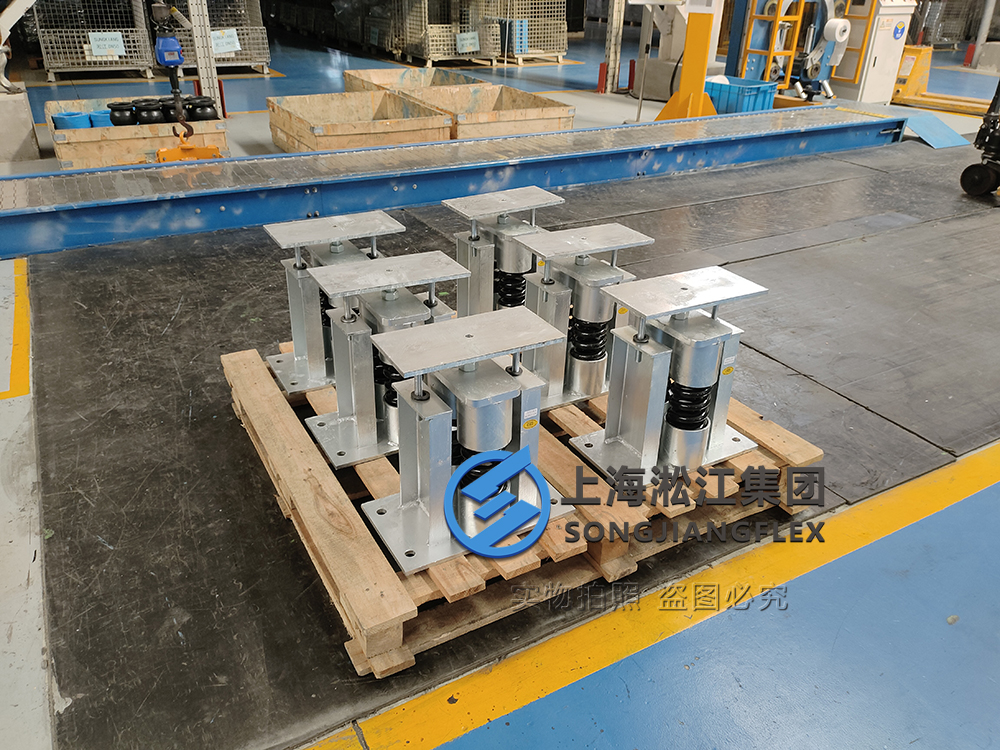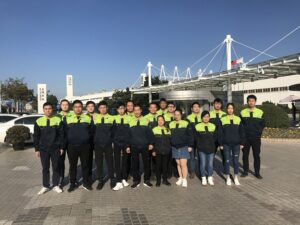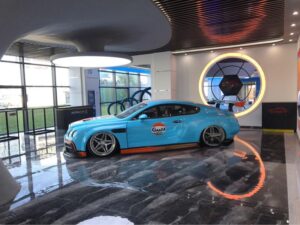Why Do Some Customers Choose Custom Steel Spring Vibration Isolators?
Standard spring isolators can’t always solve unique installation or performance problems. For clients with special needs, custom steel spring isolators offer a targeted, reliable solution.
Customers choose custom steel spring vibration isolators when standard solutions fail to meet specific load, space, or frequency needs. Customization allows tailored isolator height, spring stiffness, and mounting formats—ensuring precise vibration control for HVAC, FCUs, generators, or structural bases. From heavy-duty applications to compact fan systems, custom isolators deliver both performance and peace of mind.
Here’s what you need to know about the value, function, and selection of custom spring vibration isolators.
What makes standard steel spring vibration isolators insufficient for some projects?
Standard models don’t fit every job.
Off-the-shelf steel spring vibration isolators HVAC users often find them incompatible with unique machine weights or mounting platforms.
Whether you’re working with an uneven concrete slab or a heavy fan structure, many installations demand spring floor mount vibration isolators that adapt to non-standard layouts. When the design gets complicated, so must the solution.
What are the benefits of customizing Steel spring vibration isolators?
Customization solves your unique vibration issues.
Tailored steel spring vibration isolators improve equipment stability, installation speed, and vibration control.
For example, a spring vibration damper made specifically for a large chiller base can reduce noise while accommodating structural differences. Custom designs can prevent interference, provide seismic compliance, or fit inside tight enclosures.
What types of customization are available?
Nearly every part of the isolator can be customized.
Custom options include spring stiffness, housing material, mounting holes, and spring travel.
Whether it’s restrained spring isolators for vertical loads or open spring isolators for airflow-dependent systems, customers can optimize performance for their exact operating conditions and constraints.
In which industries is customization especially critical?
Critical industries require tailored vibration protection.
Applications in aerospace, medical testing, precision audio, and nuclear power depend on high-spec isolators.
Spring vibration isolators HVAC systems in hospitals or data centers often require quieter, more compact designs. For these sectors, kinetics spring isolators provide unmatched accuracy and durability.
How does customization help with installation and performance?
Custom isolators make installation smoother—and vibration control better.
Designing isolators to match anchor hole locations, height restrictions, or slope angles reduces the need for on-site modification.
Fan vibration isolators for rooftop units, for instance, often need baseplate adjustments or weatherproof coatings, all easily included in a custom build.
What should customers consider before ordering a custom isolator?
The right data ensures the perfect isolator.
Before placing a custom order, clients should provide equipment weight, operating frequency, available space, and mounting constraints.
A vibration isolator for FCU must account for airflow, low noise, and confined spaces—so precise details help us create a product that works the first time.
What is the function of the isolator?
Isolators decouple machines from the floor or structure.
They absorb and block vibrations generated by motors, compressors, or pumps.
Whether you’re using heavy duty vibration isolators on a diesel generator or open spring mounts on a cooling fan, the isolator reduces both noise and structural fatigue.
What are the principles of vibration isolation?
Effective isolation follows a few core principles.
By lowering the natural frequency of the support system below the excitation frequency, energy transmission is minimized.
Spring isolators with proper static deflection—especially open spring isolators—are designed to reduce vibrational energy flow and resonance buildup.
What is the isolation efficiency of vibration?
Efficiency means how much vibration is blocked.
Well-designed isolators can achieve over 90% isolation when matched to the correct frequency ratio.
Kinetics spring isolators, for example, are engineered for precision and often used in labs or high-rise mechanical rooms where vibration sensitivity is high.
What is the purpose of the isolator module?
Modular systems bring flexibility to vibration control.
An isolator module typically integrates spring support, structural framing, and sometimes damping in one assembly.
Using an adjustable spring isolator module saves time during field balancing and reduces the need for external bracing or alignment tools.
What is the purpose of a vibration switch?
Vibration switches act as safety triggers.
When excessive vibration is detected, these devices shut down equipment or issue alerts to prevent damage.
Installed alongside spring vibration isolators HVAC systems, they provide redundancy and protection—especially useful in rooftop or unmanned setups.
How do I choose a vibration isolator?
Selection must match your application.
Factors include machine weight, frequency, direction of vibration, and surrounding space.
Restrained spring isolators are ideal for seismic zones, while heavy duty vibration isolators are better for base-mounted diesel generators. Each choice has performance trade-offs.
What is the best way to isolate vibrations?
Use a system-wide isolation strategy.
Combining spring isolators with spring vibration dampers, flexible connectors, and resilient mounts ensures comprehensive protection.
For complex setups—like HVAC equipment on a steel structure—a layered approach yields the best results.
What are the standards for vibration isolation?
Yes—there are standards to follow.
International regulations like ISO 10846, ASHRAE standards, and SMACNA guidelines govern vibration isolator design, performance, and testing.
Even custom-built isolators must conform to these quality benchmarks to guarantee safety and consistency.
Custom spring vibration isolators offer precision, durability, and peace of mind—especially when off-the-shelf units don’t fit. Contact Songjiangflex to design your optimal vibration control solution.





